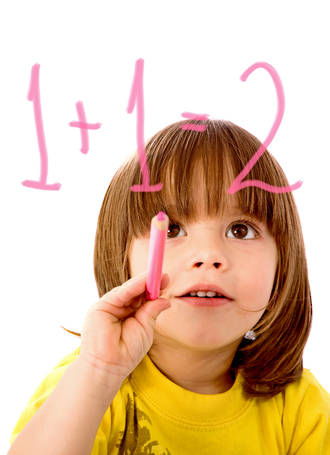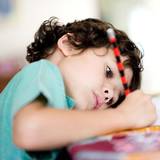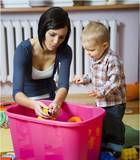Learning for life
|
As parents we have dreams for our children. We hope that they will grow into happy healthy adults with a sense of purpose in life. With new technology making rapid advances in how people work and live, their place in the world is changing very quickly. How do we as parents and teachers prepare our children for a world that is unknown to us?
|
You might also be interested in ...
Encouraging your preschooler to read & write
Why is it that some children enjoy writing and drawing and for others it’s a struggle to get them to even pick up a pencil? Children are unique and each has individual ways in which they learn. There are many different learning styles and many children lean towards one, while also being a combination of others.
Working together and managing behaviour
In our busy lives it often seems quicker and easier to give children instructions and replies of ‘Because I said so’ or ‘Do it now!’ However rewording your requests with phrases that show interest and promote involvement will encourage children to cooperate more. It helps children feel listened to, and in time they will start listening too.







We hope that they will grow into happy healthy adults with a sense of purpose in life.
With new technology making rapid advances in how people work and live, their place in the world is changing very quickly.
How do we as parents and teachers prepare our children for a world that is unknown to us?
Content knowledge
Education used to be based upon rote learning content. Remember the days of learning endless times tables and huge lists of spelling words?
This was a focus upon learning and retaining facts that were thought to be useful for children throughout their lives.
Whilst knowing a certain amount of facts is useful, for example, being able to say the alphabet before you start school, our children also need the skills to be able to cope in a changing world.
Learning dispositions
Early childhood “learning dispositions” are used to understand children’s ability to be self motivated and be lifelong learners in a changing world.
Learning dispositions are characteristics or attitudes to learning that are life skills.
They are closely aligned with primary school key competences. “Taking responsibility”, “persistence” when faced with problems, and “coping with change”, are all learning dispositions or ways children respond to learning.
As an example of dispositional learning in action, a group of seven year old children were given an unfamiliar maths problem to solve.
Half the children recognising this problem as something they had not been taught said they could not do it, and made no attempt.
The other children still recognised this as something new but they then applied what they knew from a similar situation and had a try.
The second group showed persistence and confidence in thinking they could solve an unknown problem. They showed a “can do” attitude.
How are dispositions taught at early childhood services?
Planned experiences and the way teachers respond to children as they learn, support children’s dispositions to persist, find interests, take responsibility, select and assess their own learning goals, and take an active part in the programme.
How can parents teach dispositional learning?
Parents are powerful teachers of learning dispositions for their children.
Rather than give your child the answer to a question help your child to find an answer for themselves.
Accept that finding an incorrect answer and recognising that this is not quite correct, is as important as finding the right solution.
Work together to find places that will give you the information or skills you need.
This could be a library, local person with specialist knowledge like a potter or baker, or a neighbour that knows the history of your community. As a parent it is important to show your child you are learning to.
You can learn with and from your child. Parents can model how to cope with trying something new and not quite getting it right first time.
Model how to celebrate success as well as cope with disappointment. If you show a “can do” attitude then your child will do the same.
Children who see themselves as someone who tries new things, keeps going when it is hard, knows when to stop and ask for help, learns from making mistakes and has good support networks, are children who will be successful in an unknown world.
For more information go to the Ministry of Education website.
More Hot Topics for you to enjoy
Source: This article has been written by Creators, a nationwide service offering quality home-based care and education. Creators are passionate about seeing every child’s unique talent being recognized and nurtured.